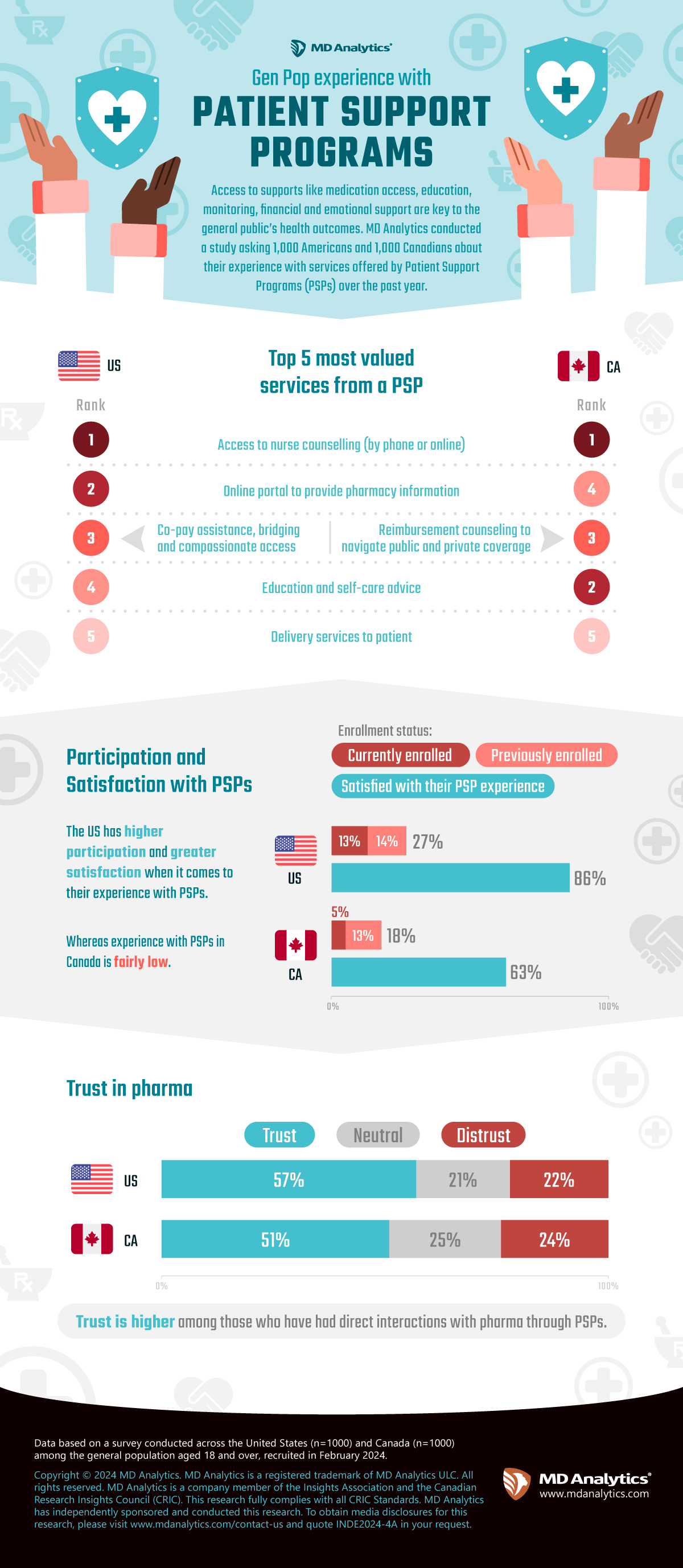Pharmaceutical companies play a vital role in the research, development, and manufacture of the medications and devices patients rely on every day. The average consumer may not interact a great deal with pharmaceutical companies, but for those receiving medications Patient Support Programs (PSPs) can be one of the key ways pharma companies interact with these patients.
We surveyed 1,000 people in the US and 1,000 in Canada to understand their perceptions of pharmaceutical companies as well as the role of PSPs.
Read More
While more than half of average Americans and Canadians say they have trust in pharmaceutical companies, that trust is even higher among those who have experiences interacting with PSPs. Among those who are currently enrolled, or previously enrolled, most say they were satisfied with their experience. That said, this survey suggests the importance of PSPs varies somewhat between the two countries with higher enrollment and satisfaction in the US. In addition, while patient in both countries rate similar supports highest as valuable, those in the US are more likely to highlight co-pay assistance, bridging, and compassionate access programs, while Canadians are more likely to value reimbursement counselling supports that help them navigate private and public coverage options.
PSPs represent an important part of the intersection between patents and those who develop and market the medications they need and have an impact on patient perceptions of pharma overall, suggesting the necessity of continued support of these programs.

